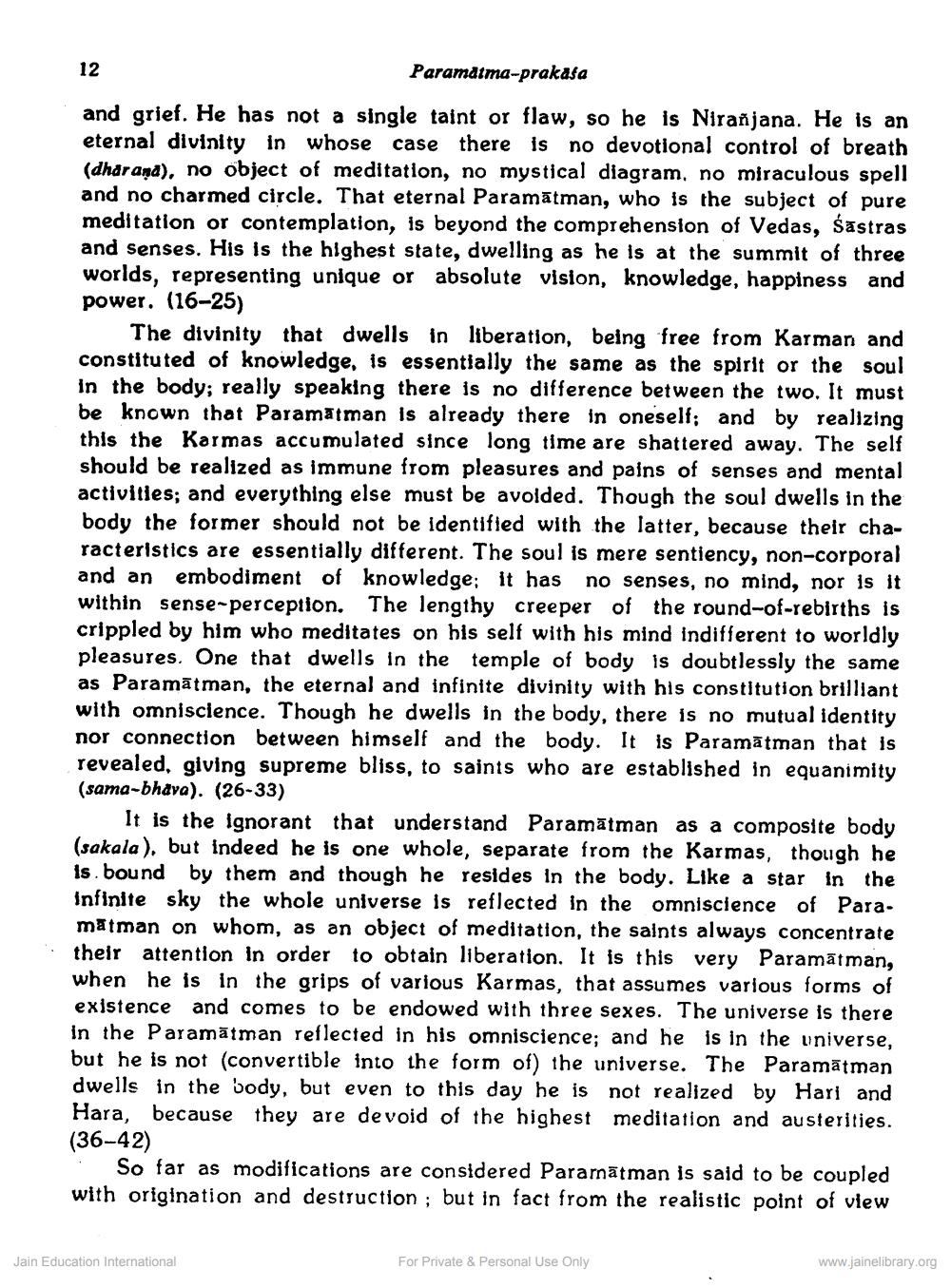________________
121
Paramdima-prakala
and grief. He has not a single taint or flaw, so he is Niranjana. He is an eternal divinity in whose case there is no devotional control of breath (dharana), no object of meditation, no mystical diagram. no miraculous spell and no charmed circle. That eternal Paramatman, who is the subject of pure meditation or contemplation, is beyond the comprehension of Vedas, Sastras and senses. His is the highest state, dwelling as he is at the summit of three worlds, representing unique or absolute vision, knowledge, happiness and power. (16-25)
The divinity that dwells in liberation, being free from Karman and constituted of knowledge, is essentially the same as the spirit or the soul. In the body; really speaking there is no difference between the two. It must be known that Paramatman is already there in oneself; and by realizing this the Karmas accumulated since long time are shattered away. The self should be realized as immune from pleasures and pains of senses and mental activities; and everything else must be avoided. Though the soul dwells in the body the former should not be identified with the latter, because their characteristics are essentially different. The soul is mere sentiency, non-corporal and an embodiment of knowledge; it has no senses, no mind, nor is it within sense-perception. The lengthy creeper of the round-of-rebirths is crippled by him who meditates on his self with his mind indifferent to worldly pleasures. One that dwells in the temple of body is doubtlessly the same as Paramatman, the eternal and infinite divinity with his constitution brilliant with omniscience. Though he dwells in the body, there is no mutual identity nor connection between himself and the body. It is Paramätman that is revealed, giving supreme bliss, to saints who are established in equanimity (sama-bhava). (26-33)
It is the ignorant that understand Paramätman as a composite body (sakala), but indeed he is one whole, separate from the Karmas, though he is bound by them and though he resides in the body. Like a star in the infinite sky the whole universe is reflected in the omniscience of Paramatman on whom, as an object of meditation, the saints always concentrate their attention in order to obtain liberation. It is this very Paramatman, when he is in the grips of various Karmas, that assumes various forms of existence and comes to be endowed with three sexes. The universe is there In the Paramätman reflected in his omniscience; and he is in the universe, in but he is not (convertible into the form of) the universe. The Paramätman dwells in the body, but even to this day he is not realized by Hari and Hara, because they are devoid of the highest meditation and austerities. (36-42)
So far as modifications are considered Paramätman is said to be coupled with origination and destruction; but in fact from the realistic point of view
Jain Education International
For Private & Personal Use Only
www.jainelibrary.org




